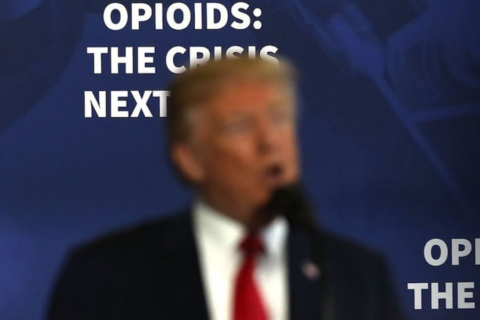The SUPPORT Act, signed into law in 2018, aimed to tackle the opioid crisis by expanding on the previous work done through the Comprehensive Addiction and Recovery Act (CARA) and the 21st Century Cures Act.
Notable components of the SUPPORT Act include public health programs within the Health Resources and Services Administration (HRSA), Substance Abuse and Mental Health Services Administration (SAMHSA) and Centers for Disease Control and Prevention (CDC). These programs aimed to increase awareness about substance use disorders (SUD) and opioid use disorders (OUD), train healthcare providers in treating patients with SUD and/or OUD and provide comprehensive services for patients undergoing treatment and recovery. The legislation also extended Medicare and Medicaid coverage to include vital treatment and recovery options, such as medication-assisted treatments (MAT) and residential care in Medicaid, as well as the coverage of methadone and telehealth services in Medicare.
Despite initial progress following the passage of the SUPPORT Act and other opioid response measures, the COVID-19 pandemic and the influx of illicit fentanyl into the country disrupted the gains made in combating the crisis. Overdose deaths surged, with more than 90,000 cases in 2020 and 106,000 deaths in 2021.
The current crisis in 2023 differs from that of 2018. Fentanyl poisonings have emerged as the primary cause of drug-related overdoses, accounting for a significant portion of the 106,000 overdose deaths in 2021. Furthermore, overdoses linked to methamphetamines, cocaine, and heroin have surpassed those associated with prescription opioids. Concerns have also been raised regarding potentially abusive prescribing practices of antipsychotic medications among seniors and other vulnerable populations.
With key provisions of the SUPPORT Act set to expire at the end of Fiscal Year 2023, the House Energy and Commerce Subcommittee on Health is assessing policies to raise awareness, increase education on the risks of OUD and SUD, improve access to comprehensive treatment (including MAT) and strengthen the workforce needed to address the crisis and explore new aspects of the problem, such as the rise of xylazine.
The committee is considering 28 pieces of legislation related to substance use disorders, including opioids, fentanyl and xylazine. The bills would expand telehealth, provide coverage for mental and behavioral health, reauthorize Medicaid coverage for substance use disorders, support addiction recovery and treatment programs, support testing capabilities for controlled substances, expand trauma-informed care for children and require opioid monitoring and regulations. We can expect that the Committee will begin to mark up these bills in the coming month before the August recess. The current list of bills to be considered is listed below.
The National League of Cities has a comprehensive policy in our National Municipal Policy that supports many of the programs included in the SUPPORT Act. Specifically, we will continue to advocate to ensure that:
- More funds make their way to the local level, where they can be put to immediate use,
- Technical assistance is part of the funded programs to ensure that all communities have access to set up these essential programs,
- The funds are flexible to ensure that cities, towns and villages can address the many substances impacting their communities.









